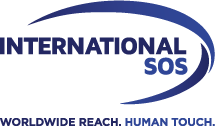Business travellers often unprepared for malaria risk in Africa
London
Large rise in the number of business travellers going to malaria-endemic countries in Africa: 61% increase in the last three years.
In 2012, malaria was the number 1 cause of hospitalisations and medical evacuations among its travellers and expatriates in Africa.
On World Malaria Day 25 April, International SOS highlights an increase in the number of business travellers going to countries in Africa where malaria is endemic. Oil & gas, mining and non-governmental organisations have long-operated in Africa and are largely aware of the impact of malaria, however globalisation is bringing in new sectors that are often less prepared.
Dr Myles Neri, Group Medical Director, International SOS says:
“We have seen an uptick in mobile employees from finance, education, technology, manufacturing and the engineering sectors. Many of their employers are unprepared -- unaware that even a short trip without the appropriate measures and chemoprophylaxis can be fatal.”
International SOS' recent analysis(1) of over 8.7 million travellers to 220 countries within its TravelTracker system show a 61% increase in travel to African countries with malaria in the past three years. International SOS cites its experience with malaria last year:
In 2012, it handled over 740 malaria cases(2) -- including calls for advice, hospitalisations and evacuations.
82%(3) of its malaria cases occurred in Africa.
47%(4) required medical evacuation to obtain a higher level of medical care.
Malaria programmes for travellers and expatriates often inadequate
Employers often struggle with the scope of their malaria programme(5). “At a minimum, businesses may just send employees to a travel doctor for anti-malarial tablets and advice. Often this isn’t enough. When employees do not take their medication as prescribed or take steps to minimise mosquito bites, they can end up contracting the disease,” says Dr Neri. He refers to a recent case handled by International SOS’ London assistance centre:
“A 51-year old man from Belgrade working as engineer was deployed to Lagos, Nigeria for a two-week business trip. He was uninformed about the risks of malaria as his employer did not have appropriate travel procedures in place. Whilst abroad, he did not take anti-malarial tablets. Four days after returning to Europe, he got severe headaches, fever and began to pass blood in his urine. In Belgrade, he was hospitalised. However, the facility did not have malaria treatment readily available. He was evacuated to London where he was able to get appropriate treatment and eventually recovered.”
Most malaria cases occur when business travellers return home(6): Medical kits helpful
Studies have suggested that malaria is often not recognised or properly managed in non-endemic countries(7). Fatalities occur with the failure to take anti-malarial tablets, misdiagnosis, inappropriate treatment or delays in treatment(8).Treatment administered early is very important for recovery. In places where malaria is not commonplace, malaria medications may not be readily available. Many organisations are providing their travellers and healthcare professionals with malaria diagnosis and curative kits backed by telemedicine advice. Early on, these kits can help detect the presence of the parasites that cause malaria and contain malaria treatment.
Prevention measures crucial
It is important for companies to define their policy towards malaria if they send employees to or operate in an area which is medium to high risk. They should:
Reference evidence-based approaches to chemoprophylaxis.
Provide access to clinical services and medical assistance for malaria case management.
Provide education and training around personal protection to reduce mosquito bites.
Give access to quality-assured medication before and during travel: In Sub-Saharan Africa, as many as a third of anti-malarial tablets are counterfeit9.
Dr Dave Knight, International SOS, Medical Director says: “Malaria is complex and specialist advice is advisable. There needs to be deep understanding and discussion on testing, disciplinary procedures, cost and practicality.”
--Ends--
1] Taken from a dataset of 8.7 million travellers going to international destinations in TravelTracker in 2009-2012. TravelTracker is used by over 700 of International SOS' multinational clients with each client typically having thousands of travelling employees.
2-4] 2012 analysis of over 12,000 medical cases in International SOS’ medical case management system.
5] Page 18, “Duty of Care of Employers for Protecting International Assignees, their Dependents, and International Business Travelers, International SOS and Dr.Lisbeth Claus, 2009.
6-8] Kain, Keystone, Malaria in Travellers Epidemiology, Disease and Prevention, Infectious Disease Clinics of North America, 12(2):267-84,1998
9] Nayyar GM, Breman JG, Newton PN, Herrington, Lancet Infectious Disease, Jul;12(7):506,2012.
About International SOS
(https://www.internationalsos.com/) is the world's leading medical & security services company operating from over 700 sites in 70 countries with 10,000 employees, led by 1,200 physicians and 200 security specialists. Our global services include medical and risk planning, preventative programs, in-country expertise and emergency response for travellers, expatriates and their dependents of over 70 percent of the Fortune 500 companies.
Notes to Editors
About the International SOS Group of Companies The International SOS Group of Companies is in the business of saving lives, protecting your global workforce from health and security threats. Wherever you are, we deliver customised health, security risk management and wellbeing solutions to fuel your growth and productivity. In the event of extreme weather, an epidemic or a security incident, we provide an immediate response providing peace of mind. Our innovative technology and medical and security expertise focus on prevention, offering real-time, actionable insights and on-the-ground quality delivery. We help protect your people, your organisation's reputation, as well as support your compliance reporting needs. By partnering with us, organisations can fulfil their Duty of Care responsibilities, while empowering business resilience, continuity and sustainability. Founded in 1985, the International SOS Group, headquartered in London & Singapore, is trusted by 12,000 organisations, including the majority of the Fortune 500, as well as mid-size enterprises, governments, educational institutions and NGOs. 12,000 multicultural medical, security and logistics experts stand with you to provide support & assistance from over 1,000 locations in 90 countries, 24/7, 365 days.
To protect your workforce, we are at your fingertips: www.internationalsos.com










